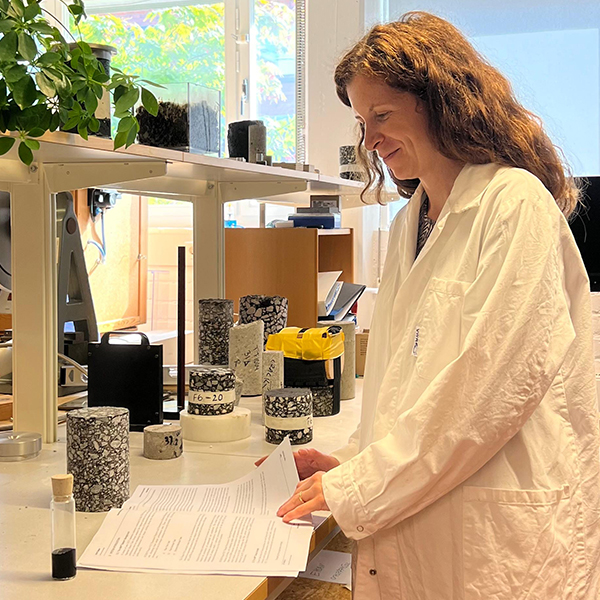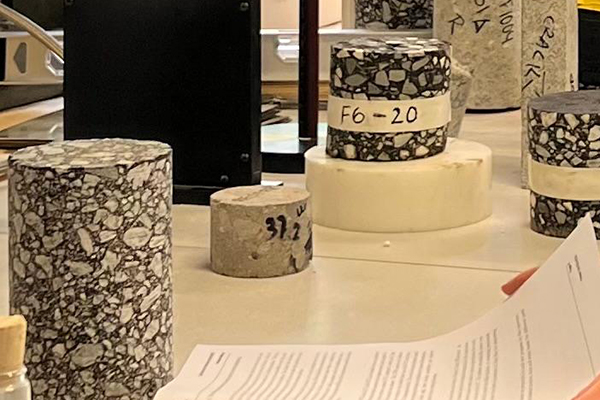Stronger eco-friendly asphalt from forest waste

KTH researchers aim to make paved roads more sustainable by using the natural material lignin, a by-product of the wood and paper industry.
“The new material will reduce the need for oil-based asphalt. We are working to make roads both more environmentally friendly and stronger,” says Maria Chiara Cavalli, Senior Lecturer in Civil Engineering at KTH Royal Institute of Technology.
A large part of the carbon dioxide emissions associated with Sweden's roads are related to the production of the road material.
“In order for society to become less dependent on petroleum-based asphalt, we are increasingly using the bio-based binder lignin. The goal is to make road construction more sustainable over time,”
Chiara Cavalli
says.

Her research team is working to strengthen the internal structure of lignin.
“We use microscopy combined with chemical methods to find the ultimate recipe for the lignin mixture,” Chiara Cavalli says.
“Today, some companies mix lignin into asphalt without taking into account that the life expectancy of asphalt is only about 20 years, which makes road maintenance more expensive. We are investigating whether it is possible to make asphalt both more environmentally friendly and stronger, so it will last longer.”
The project is part of a three-year
Formas project
on the use of natural and sustainable biomaterials in urban environments.
“We have two years left on this project. Formas chose to collaborate with us because of our scientific approach here at KTH,” Chiara Cavalli says.
Traditional asphalt production uses crude oil from countries such as Kuwait, and the filler material is extracted from mountains or river beds. Now the researchers want to replace as much of the oil and filler as possible with sustainable material.
“A bonus is that the lignin mixture gives the roads increased resistance to moisture damage. Moisture damage is one of the biggest road problems we see today.”

Lignin can be described as a rigid and waterproof ‘cement’ that contributes to the structural strength of plants. It is a by-product of the wood and paper industries and is usually burned.
“We aim to reuse large amounts of lignin for the new bio-based asphalt material, which we hope to make more environmentally friendly and more durable,” says Maria Chiara Cavalli.
Text:
Katarina Ahlfort
Photo: Aleksandra Kuksova
